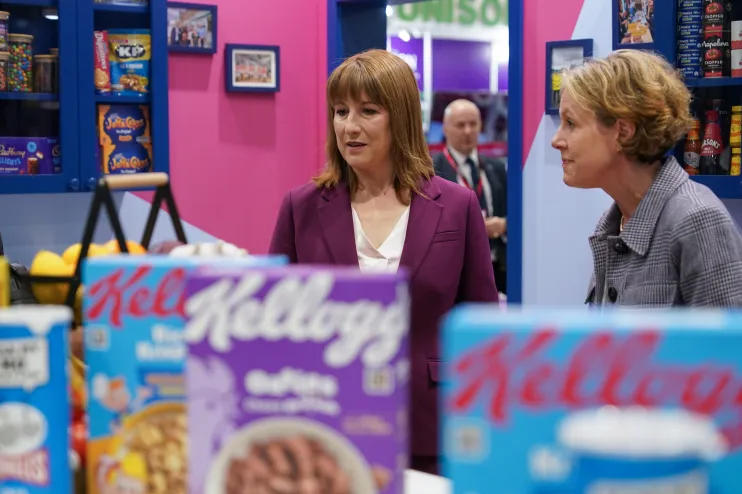Copyright cityam

There won’t be many rabbits out of Reeves’ hat at the upcoming Budget but here’s what to expect: gambling taxes, windfall taxes and an income tax national insurance swap, says Tim Sarson I remember the good old days of Budget predictions. We used to get our thinking caps on about a fortnight before the event, put out a blog and end it with some speculation about what this year’s rabbit out of the hat might be. Budget prediction season starts earlier these days. The decorations were already going up by late August. But nobody is expecting a shower of gifts. There will be very few, if any, rabbits on 26 November. There will be tax rises. Ahead of fiscal events, my KPMG tax policy team get their heads together to work out what might happen on the day, and what we should be telling our clients. We are not political experts. Instead, we put ourselves in the shoes of Treasury officials faced with the government’s current financial position. Only after we’ve gone through the numbers, tax by tax, and tested ideas with our technical specialists, do we layer on just a dash of political judgment to our predictions. Well okay, perhaps more than a dash. Here are the headlines from this year’s Budget conclave: First, the main dynamics: there’s a sizeable fiscal gap to fill, let’s say at least £20bn in year three of the forecast. There’s a new policy team in town led by former Resolution Foundation chief Torsten Bell. In the background there is a difficult world economy with unpredictable tariffs, stubborn inflation and tectonic shifts in international tax competition. And, finally, a 2024 Labour manifesto that ruled out rises in taxes that together account for about three quarters of UK revenue. The government has choices: it can broaden the tax base; it can introduce a new tax, as was attempted with the health and social care levy; or it can fiddle around the edges in the small stuff, as it largely did last year. Two measures seem inevitable. Freezing personal tax thresholds has become almost as much a Budget day tradition as freezing fuel duty. Extending the freeze to 2030 delivers upwards of £10bn of revenue to the government according to the Institute of Fiscal Studies (IFS). I anticipate the government taking the money from tackling avoidance and evasion and closing the tax gap. Yes, the tax gap is historically low and in the world of diminishing returns, but the small companies gap has ballooned. Investing in enforcement could squeeze out a couple more billion. Both measures count as broadening the base. I’m still undecided whether Reeves will try another Budget favourite, and target some taxes at a sector that looks like it’s been doing well off the back of factors outside its control. The last example of this were the oil and gas producers and energy generators during the height of the Ukraine War price spike. With further opportunities for further taxing North Sea energy having essentially dried up, the banking sector could be next in the Treasury’s sights. A tweak in the banking surcharge or bank levy, or the “windfall tax” on profits arising from Bank of England Quantitative Easing might seem likely. But recent noises from Reeves herself suggest she may resist short term expediency because of long-term qualms about our competitiveness as a financial centre. Gambling with the national finances? There is plenty of noise about gambling taxes too. A hike in one or more of the various duties paid by the punters or the gaming operators seems almost nailed on, which is a politically a safe choice. My big prediction though is for an income tax and National Insurance (NI) swap. I’d pondered this for a while and mooted it to clients. Their reaction was neutral at worst. So, when the Resolution Foundation produced this exact proposal I thought, “right, it’s happening”. Raising the basic and higher rates of Income Tax by two per cent while reducing employee’s National Insurance Contributions (NICs) by the same amount breaches a manifesto commitment, but you could argue it doesn’t impose any more tax on “ordinary working people”. However, what it does do is raise several billion in revenue by broadening the base of taxation, because landlords, investors and pensioners pay income tax but not NI. It pleases the think tankers who generally dislike NI. If the Chancellor really wanted to blitz that fiscal gap, she could announce an income tax and NI swap as the start of a process. Each year the rates would go up, and down, by two per cent, until employer’s NI no longer exists. If the Chancellor really wanted to blitz that fiscal gap, she could announce an income tax and NI swap as the start of a process. Each year the rates would go up, and down, by two per cent, until employer’s NI no longer exists. By year three of the forecast, which is the critical one for our fiscal rules, this would be increasing revenues by as much as £18bn. If they do this, you can ignore the kites being flown on extending NI to landlords, or to pension contributions. The rate swap does the work. What else? The usual cornucopia of tweaks. But I’ll end with some final predictions of things that won’t happen. Unfreezing the fuel duty escalator, which sits happily in the Treasury books each year until it’s taken out at the dispatch box. Wealth tax isn’t happening. In the real world it’s complicated, doesn’t raise much if anything, and sends unhelpful international signals. The rate of VAT won’t go up despite some recent noise. This would be Inflationary, and a clear manifesto breach. The long overdue root and branch reform of the property tax system will have to wait. And new incentives to shore up our competitiveness for investment will come, but not this year. Tim Sarson is head of tax at KPMG



